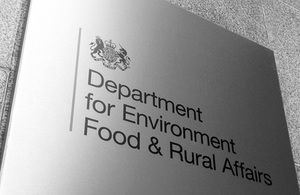
The government has announced plans to double compensation for water company customers who experience disruptions in their basic water services, launching a consultation today to
implement these changes.
On Monday, August 12, the government introduced new measures aimed at holding water companies accountable for failing to meet customer expectations. Under these proposed regulations, households and businesses will be eligible for higher compensation rates in a wider range of situations where basic water services are affected.
Secretary of State for Environment, Food and Rural Affairs, Steve Reed, outlined the new proposals, which will double the reimbursement amount customers are legally entitled to when water companies fail to meet key service standards.
The government is conducting an eight-week consultation on these proposals, which would double payments for all existing service failures and increase compensation for particularly disruptive incidents, such as failing to notify customers of supply interruptions or missing scheduled appointments.
Additionally, the government plans to broaden the circumstances that trigger automatic compensation, including instances where boil water notices are issued due to a drop in drinking water standards, or when water companies fail to conduct promised meter readings or installations.
Boil notices, which require customers to boil water before consumption, cooking, or brushing teeth, would now automatically entitle affected customers to compensation. This change would mean that recent water outages in Brixham and Bramley earlier this year would have qualified all impacted customers for compensation, where previously there was no such entitlement.
Secretary of State for Environment, Food and Rural Affairs, Steve Reed said:
“Our water industry is broken. After years of failure, households and businesses have been let down by water companies time and time again.
The new Government will clean up the water industry and turn the tide on the destruction of our waterways ensuring water companies protect the interests of their customers and the environment.”
Welcoming the launch of the consultation, Jenny Suggate, Director of Policy, Research and Campaigns at CCW, said:
“We’re delighted the government is fast-tracking efforts to improve the Guaranteed Standards Scheme, with the potential to boost compensation and support for hundreds of thousands of people each year when they are let down by their water company.
Given that there has been little change to the standards since they were first introduced, an overhaul is long overdue, and we know it is a pressing priority for household and business customers. Demanding higher standards of service and improving levels of compensation when things go wrong will incentivise water companies to get things right the first time for all customers.”
The proposed changes would make the minimum compensation payment at least £40, which is roughly 10% of the average annual water and sewerage bill of £440. Higher compensation amounts could be awarded for more severe issues, such as up to £250 for low water pressure and up to £2,000 for internal sewer flooding.
The Guaranteed Standards Scheme outlines basic customer service standards for the water sector, including timely restoration of water supply, responding to written complaints, and managing sewer flooding risks. Compensation levels for these standards have remained unchanged since 2000.
Today's proposals to significantly increase compensation reflect the need to adjust payments for inflation and address the significant impacts of recent water supply disruptions in communities like Hastings, Brixham, and Bramley. The changes aim to ensure that water companies prioritize fair and transparent customer service when basic services are compromised.
This consultation follows the government's recent Water (Special Measures) Bill, which aims to reduce sewage spills and attract investment to upgrade infrastructure. The bill includes measures such as:
Strengthening regulation to ensure water executives face personal criminal liability for lawbreaking;
Giving the water regulator new powers to ban bonus payments if environmental standards are not met;
Increasing accountability for water executives through a new 'code of conduct' for water companies, allowing customers to hold executives to account;
Introducing new powers to impose automatic and severe fines;
Requiring water companies to install real-time monitors at every sewage outlet, with data independently scrutinized by water regulators.
The Consumer Council for Water (CCW) has contributed to the consultation, following their own review of the standards. The consultation will run until Monday, October 7, with the government expected to respond after it concludes.
Further legislation will be introduced in due course to fundamentally reform the water sector and restore the health of the UK's rivers, lakes, and seas.




































